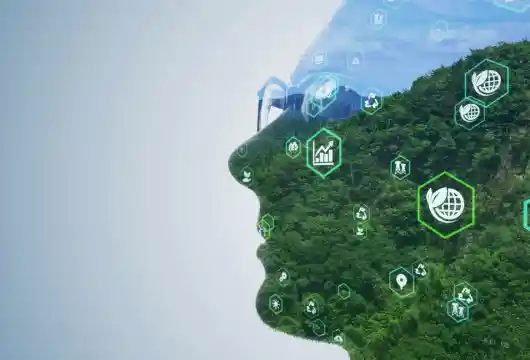Sustainability Technologies Unveiling in 2024
As the world grapples with the urgent need to address environmental challenges, technology plays a pivotal role in driving sustainable solutions across various sectors. From renewable energy innovations to eco-friendly materials and waste management systems, advancements in sustainability technologies promise to reshape our future for the better. In this article, we’ll explore five cutting-edge sustainability technologies that are poised to make a significant impact in 2024 and beyond.
1. Carbon Capture and Storage (CCS) Technology
Carbon capture and storage (CCS) technology is a critical tool in the fight against climate change, enabling the capture of carbon dioxide (CO2) emissions from industrial processes and power plants before they are released into the atmosphere. In 2024, we can expect to see advancements in CCS technology that make it more efficient, cost-effective, and scalable.
New developments in CCS may include novel capture techniques, such as direct air capture and enhanced solvent-based capture methods, as well as improvements in CO2 storage and utilization technologies. These advancements can accelerate the transition to a low-carbon economy by helping industries reduce their carbon footprint and mitigate the impacts of climate change.
2. Advanced Energy Storage Solutions
As renewable energy sources like solar and wind continue to grow in prominence, the need for advanced energy storage solutions becomes increasingly important. In 2024, we can anticipate the emergence of innovative energy storage technologies that improve renewable energy systems’ reliability, efficiency, and affordability.
This may include developments in battery technology, such as next-generation lithium-ion batteries, solid-state batteries, and flow batteries, as well as advancements in hydrogen and thermal energy storage systems. These advancements will enable grid operators to integrate renewable energy into the power grid better, enhance energy reliability, and reduce dependency on fossil fuels.
3. Circular Economy Technologies
The concept of the circular economy, which aims to minimize waste and maximize resource efficiency by reusing, recycling, and repurposing materials, continues to gain traction globally. In 2024, we expect to see the rise of innovative circular economy technologies that enable businesses to close the loop on their production and consumption processes.
This may include advancements in recycling technologies, such as chemical recycling and advanced sorting techniques, as well as the development of circular product design tools and materials designed for disassembly and reuse. These technologies will help reduce waste and pollution, create new economic opportunities, and drive sustainable growth.
4. Precision Agriculture and Smart Farming
The agriculture sector faces numerous sustainability challenges, including water scarcity, soil degradation, and the impacts of climate change. In 2024, we can anticipate the widespread adoption of precision agriculture and innovative farming technologies that enable farmers to optimize resource use, increase productivity, and reduce environmental impact.
This may include deploying sensors, drones, and satellite imaging technologies for real-time monitoring of crops, soil health, and weather conditions and using data analytics and artificial intelligence to optimize crop management practices, irrigation systems, and pest control strategies. These technologies could revolutionize food production, making agriculture more sustainable, resilient, and productive.
5. Sustainable Building Materials and Construction Techniques
The construction industry significantly contributes to global carbon emissions and resource depletion, making it a prime target for sustainable innovation. In 2024, we expect the emergence of advanced sustainable building materials and construction techniques that minimize environmental impact and enhance building performance.
This may include the development of low-carbon concrete, recycled and bio-based materials, modular construction methods, and passive building design principles that optimize energy efficiency and indoor comfort. These advancements will reduce the carbon footprint of buildings and create healthier, more sustainable living and working environments.
The future of sustainability lies in the hands of innovative technologies that enable us to address environmental challenges while driving economic growth and social progress. From carbon capture and energy storage to circular economy solutions, precision agriculture, and sustainable construction, the technologies highlighted in this article hold immense promise for shaping a more sustainable future in 2024 and beyond. By embracing these advancements and investing in sustainable innovation, we can build a more resilient, equitable, and prosperous world for future generations.
CLICK HERE for more blogs

